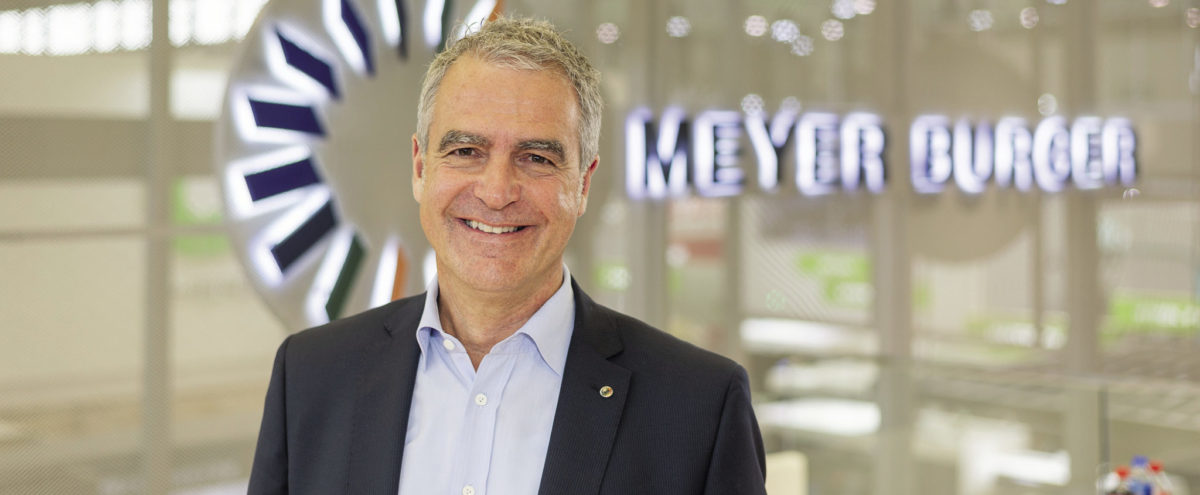The board of embattled Swiss solar manufacturing equipment supplier Meyer Burger today fought off an attempt by an activist shareholder group to have a representative appointed as a director.
The Thun-based company had arranged an extraordinary general meeting (EGM) to vote on the proposed appointment of Mark Kerekes to the board and, if the appointment were approved, to review executive pay. The vote weighed in the board’s favor but the 35% of votes cast for the Sentis candidate – which pv magazine understands includes 12% of previously non-aligned shareholders – indicates just how unsettled Meyer Burger stockholders are with the company.
Kerekes is joint chief executive of Sentis Capital PCC, the single largest investor in Meyer Burger and a shareholder which has been a thorn in the side of the equipment maker’s board since its call for the company to develop its own next-generation solar module production facility appeared to fall on deaf ears last year.
In December, Sentis Capital – which at the time reportedly held a 6% stake in Meyer Burger – suggested the board borrow sufficient funds to develop a 5-10 GW annual production capacity fab to produce and sell its own heterojunction (HJT) and tandem solar cell modules.
The Sentis solution
Sentis argued global module makers were put off investing in Meyer Burger’s production equipment because of the high cost and the risk that the estimated $0.07/Wp financial benefit the technology would bring would be wiped out as soon as rivals purchased the same tech.
Why not, Sentis argued, develop Meyer Burger’s own production capacity and bank the exclusive benefits? The rebel shareholder suggested the Meyer Burger board might seek a partnership to set up a module factory, although that appeared to be its least preferred option, given the threat it might pose of liquidating the holding of shareholders like itself.
The board of Meyer Burger appeared to balk at the thought of taking on more debt at a time when its profit margins in China were getting ever thinner. The subsequent decision, in August, by chief executive Hans Brändle to row back on plans for the Swiss company to relocate some of its manufacturing and sales functions to China appeared to incense Sentis, which had been enthusiastic about that strategy and will have undoubtedly noted the recent bumper orders from the Far East announced by German solar manufacturing equipment supplier RENA Technologies.
What was the vote tally?
The board of Meyer Burger finally bowed to Sentis’ demand to vote on whether to appoint a representative of the shareholder to the Meyer Burger board and, with 391 shareholders attending the EGM, a “clear majority” voted against the proposition.
Brändle and recently-appointed Meyer Burger chairman Remo Lütolf may feel vindicated in their wish to pursue a high-quality, Europe-focused strategy based initially on supplying HJT and SmartWire products to Norwegian developer REC Solar, and on commercializing perovskite-solar tandem solar cells with Anglo-German company Oxford PV.
However, the scale of dissent among shareholders who voted at the EGM would indicate the company’s board still has a long way to go to win over hearts and minds.
This copy was amended on 01/11/19, at the request of Meyer Burger, to remove reference to RENA Technologies as a rival to the Swiss equipment supplier, and to add the results of the shareholder vote.
This content is protected by copyright and may not be reused. If you want to cooperate with us and would like to reuse some of our content, please contact: editors@pv-magazine.com.




By submitting this form you agree to pv magazine using your data for the purposes of publishing your comment.
Your personal data will only be disclosed or otherwise transmitted to third parties for the purposes of spam filtering or if this is necessary for technical maintenance of the website. Any other transfer to third parties will not take place unless this is justified on the basis of applicable data protection regulations or if pv magazine is legally obliged to do so.
You may revoke this consent at any time with effect for the future, in which case your personal data will be deleted immediately. Otherwise, your data will be deleted if pv magazine has processed your request or the purpose of data storage is fulfilled.
Further information on data privacy can be found in our Data Protection Policy.